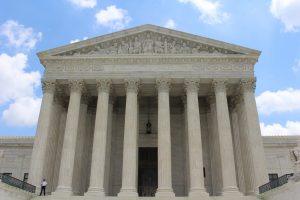 An earlier article discussed the ABLE Act that was signed into law in 2014, which permits disabled individuals to create savings accounts and set aside monies for their needs without disqualifying them from public benefits. Three different pieces of legislation were then proposed in the House to modify some of the provisions of the ABLE Act. Corresponding legislation was introduced in the Senate and referred to the U.S. Senate Committee on Finance. The Senate Finance Committee has approved two of the bills, but the third bill, which would raise the age of eligibility to 46 from 26, was not discussed. Many groups are upset that the ABLE Age Adjustment Act was omitted and may oppose all of the bills in an effort to have the age limitation bill revisited. The bills still need to wind their way through the procedural process, but certainly there are various negotiations occurring behind the scenes and hopefully resolution is on the horizon. In the meantime, implementation of the ABLE Act is in full force around the country. #specialneeds #ABLEact #estateplanning @bgnthebgn
An earlier article discussed the ABLE Act that was signed into law in 2014, which permits disabled individuals to create savings accounts and set aside monies for their needs without disqualifying them from public benefits. Three different pieces of legislation were then proposed in the House to modify some of the provisions of the ABLE Act. Corresponding legislation was introduced in the Senate and referred to the U.S. Senate Committee on Finance. The Senate Finance Committee has approved two of the bills, but the third bill, which would raise the age of eligibility to 46 from 26, was not discussed. Many groups are upset that the ABLE Age Adjustment Act was omitted and may oppose all of the bills in an effort to have the age limitation bill revisited. The bills still need to wind their way through the procedural process, but certainly there are various negotiations occurring behind the scenes and hopefully resolution is on the horizon. In the meantime, implementation of the ABLE Act is in full force around the country. #specialneeds #ABLEact #estateplanning @bgnthebgn
In addition, as was predicted, a battle has erupted between the nursing home industry and the Centers for Medicare and Medicaid Services (“CMS”) over the final rule issued by CMS that bans the use of binding pre-dispute arbitration agreements by nursing homes that accept Medicare and Medicaid patients. The American Health Care Association along with four long-term care providers filed suit against the Health and Human Services Secretary and CMS arguing that the agencies overstepped their authority in issuing the rule. They are seeking declaratory and injunctive relief to prevent the rule from going into effect on November 28th. Many will follow this case closely as the final rule, as issued, will have quite the impact on the nursing home industry, the patients and their families if it takes effect. Thus, stay tuned for further updates as the lawsuit moves forward. #elderlaw #elderabuse #nursinghome #arbitrationbanned @bgnthebgn

 The
The  On October 1st (unless otherwise noted) a number of new laws will take effect in Maryland that may have an impact on you or those with whom you work. Below is a summary of a few key pieces of legislation of which you should be aware.
On October 1st (unless otherwise noted) a number of new laws will take effect in Maryland that may have an impact on you or those with whom you work. Below is a summary of a few key pieces of legislation of which you should be aware.